What is zucchini squash? And is zucchini healthy? Learn about the health benefits of zucchini (plus how to buy, store, and cook with it)!
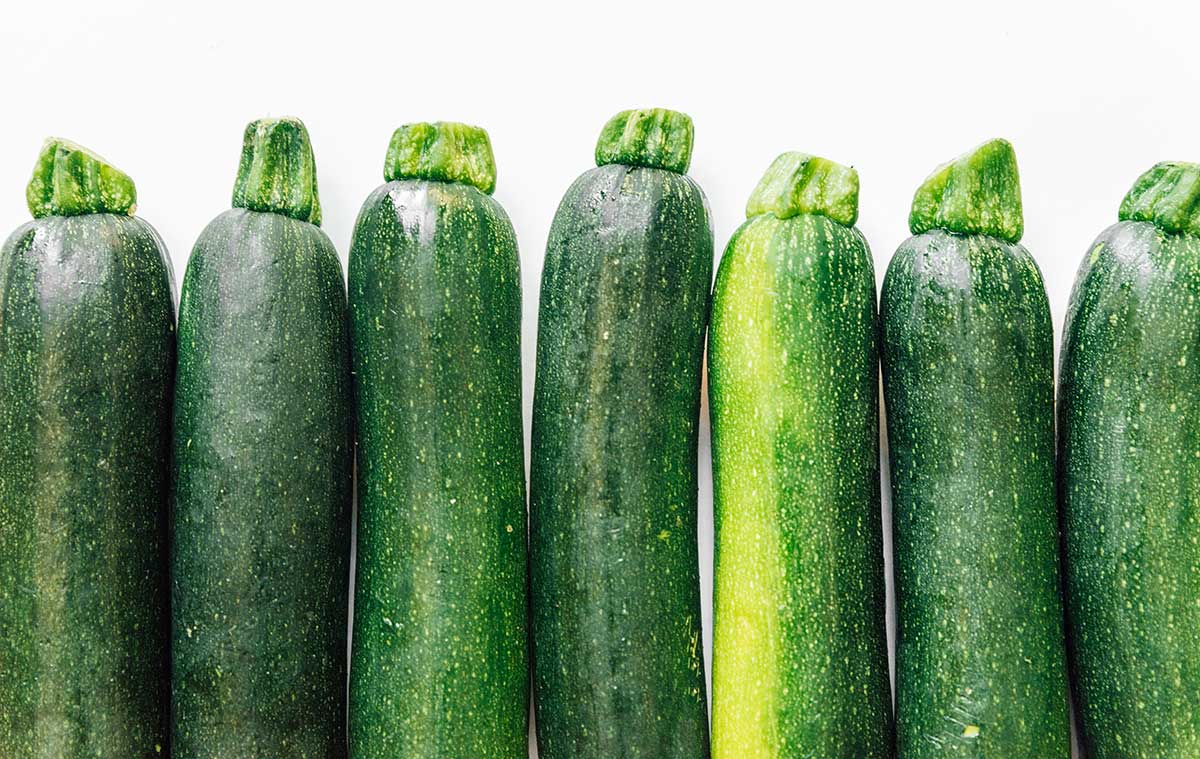
Before we dive into the amazing health benefits of zucchini…everyone loves themselves some food history right?
Well, all types of squash plants (including zucchini) originate in the Americas. When Europeans discovered these starchy plants, they brought them back home and started growing and cultivating them there.
It was in Italy that the modern day zucchini finally came to be, where it was dubbed zucchino (little squash). The zucchini made its way back to America in the 1920s, where it was ignored by the average consumer for about 50 years. Poor zucchini. But it’s okay, we’ve got an entire arsenal of zucchini recipes dedicated just to you, zucchini, from zucchini noodles to stuffed zucchini to zucchini desert crisp!
What’s in a name?
While zucchini get’s in name from the Italian word for little squash (zucchino), zucchini is known around the world as a courgette! And zucchini in Spanish? Calabacín!
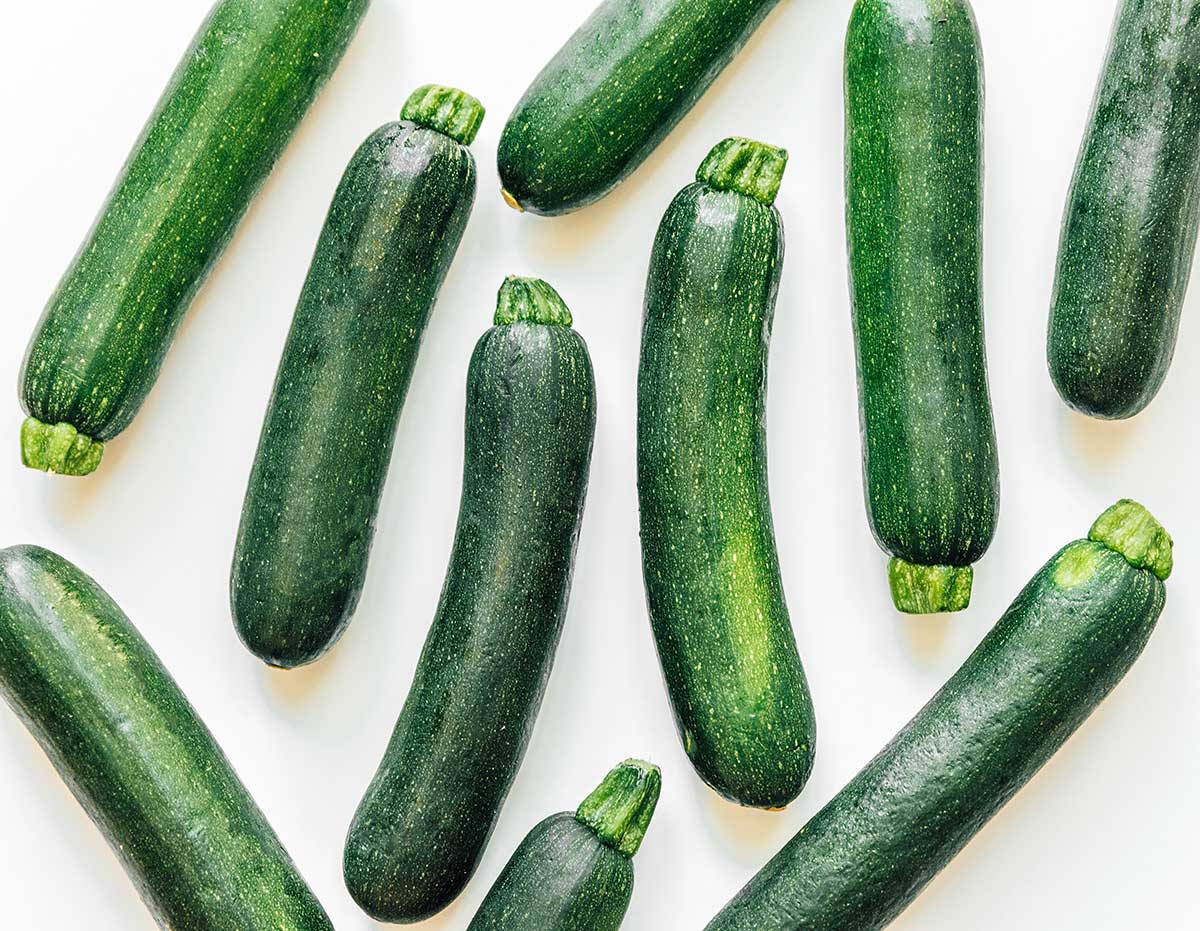
Health benefits of zucchini
Zucchini (otherwise known as courgette) is a filling and low-calorie ingredient that’s loaded with nutrients! I’ll put on my nutritionist brain and break it down. (This information is per 1 large zucchini, raw, with skin,)
Calories in Zucchini: 52
Zucchini is a low calorie vegetable, making it a great choice for weight loss.
Carbs in Zucchini: 11g
Zucchini is also low in carbs, as far as vegetables go! It’s a great choice for keto and low carb diets.
Fiber: 4g
Zucchini is a good source of fiber, and has 14% of your Daily Value (DV). This means that zucchini can can make you to feel full, helping you to eat less and lose weight.
Protein: 4g
As with most vegetables, zucchini is not particularly high in protein.
Fat: 1g
While not completely fat-free, zucchini is very low fat.
92% Daily Value of Vitamin C
1 large zucchini contains almost all of the vitamin C that you need in a day! This antioxidant helps maintain your immune system as well as helps to create collagen.
23% Daily Value of Folate
Zucchini is rich in folate, which is a water-soluble vitamin that helps make DNA & RNA.
17% Daily Value of Vitamin K
Zucchini contains Vitamin K, a fat-soluble vitamin that helps maintain healthy blood clotting and bone synthesis.
13% Daily Value of Vitamin A
Zucchini is also a good source of Vitamin A, which is essential in many components of healthy vision, as well as immunity!
Phew! That’s a lot of zucchini nutrition. If that didn’t fill you in, here are answers to some common questions about zucchini!
The healthiest way to eat courgette is raw, which preserves all of its vitamins and minerals! To make it even healthier, leave the skin on the zucchini. It contains a bulk of the nutrients, especially Vitamin A, Vitamin K, and fiber.
As long as you are eating it in moderation, courgette can be consumed everyday.
Yes, zucchini is a versatile ingredient that can be eaten raw or cooked.
Yes, dogs can eat zucchini too! Everything that makes zucchini healthy for humans also makes it healthy for your furry friends.
Yes, zucchini is keto friendly. According to the USDA, a medium zucchini contains 6g of carbs. You can do a lot with those six grams. Give Zucchini Fries a try. The advantage in “using” 6 of your limited carb grams in a zucchini is the heavy dose of vitamins, minerals, and fiber you get from the zucchini. Alternatively Keto Zucchini Chips are a popular option for getting your veggies and staying in ketosis.
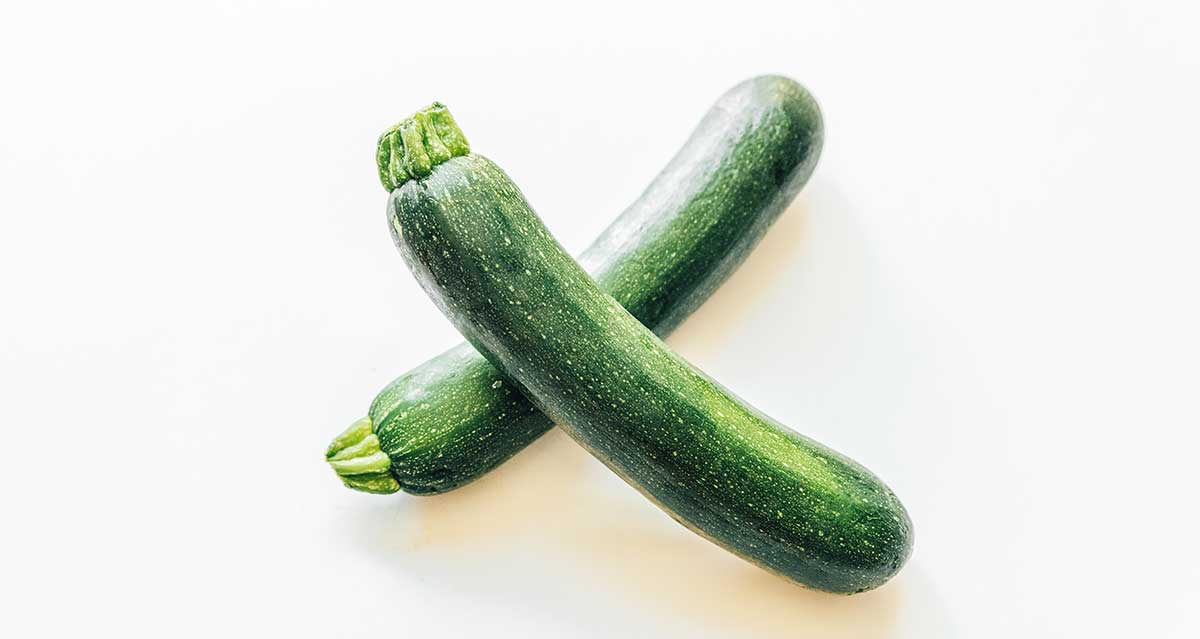
What is zucchini?
Zucchini is ubiquitous in grocery stores around the world. But…what even IS zucchini?
Is zucchini a squash?
Yes! Zucchini is a summer squash, meaning it has a tender, thin skin (compared to winter squashes like pumpkin, which have a thick skin).
Is zucchini a fruit or vegetable?
Despite being savory, zucchini is technically a fruit! You can tell that zucchini is a fruit because of two important things:
- It has seeds – Though they may be small in most zucchini squash, they do contain seeds, which distinguishes them form vegetables
- It has flowers – The yellow delicacy know as squash blossoms come from zucchini!
Types of zucchini
There aren’t many variations of zucchini, probably because anything varying far from your everyday zucchini gets classified as another type of squash. The breakdown is pretty simple:
- Black Beauty: These are the most common kind of zucchini (and what is pictured in these images)!
- Gourmet Gold: Similar in taste and texture to the standard green zucchini, but sunshine yellow!
- Globe Zucchini (aka Round or 8-Ball Zuchhini): This round, softball-sized variety is great for stuffing. Just scoop out the insides, stuff, and roast!
Did you know?
Zucchini can grow to be REALLY BIG? The biggest zucchini ever recorded was 7 feet 10 inches! If left to its own accord, your average zucchini would grow to be as big as a baseball bat. But it wouldn’t taste so swell. Bigger zucchinis are tough and fibrous, so we pick them when they’re small (about 7 to 9 inches).
Generally, smaller zucchinis are less bitter, have softer seeds, and thinner skins. You’ll want to choose one with smooth skin that’s blemishes-free.
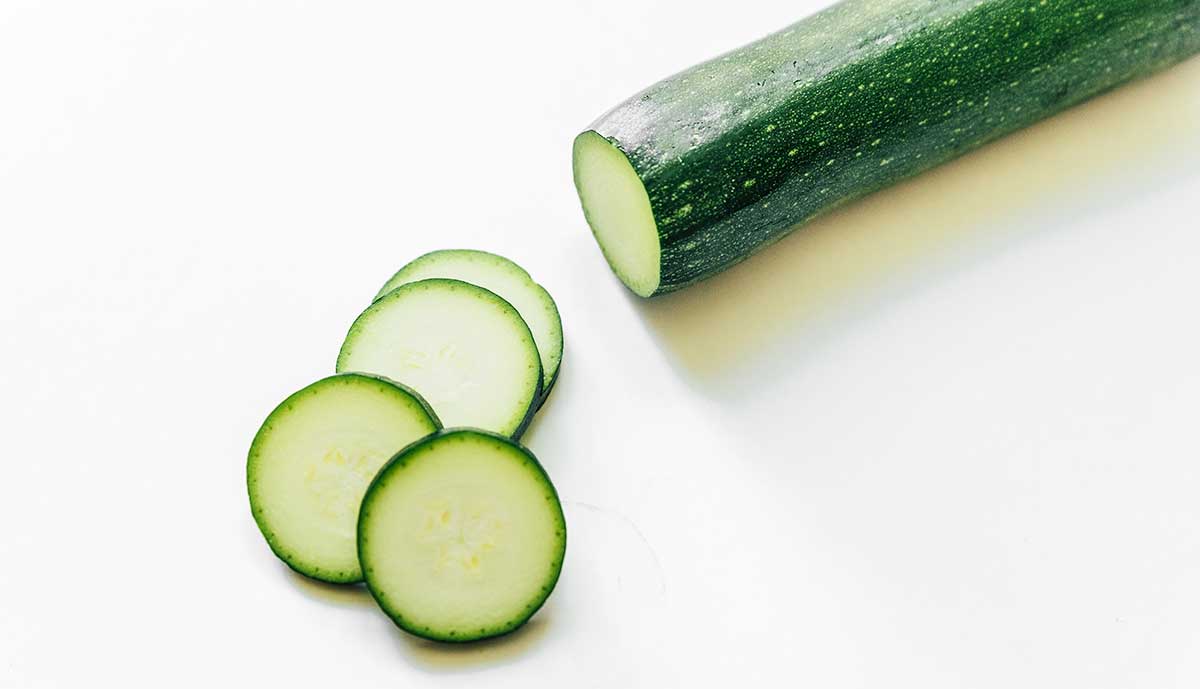
How to buy good zucchini
Zucchini grows best in temperate climates…not too hot, not too cold. While you can get it just about year-round, they’re out in full force during the summer months.
How To Tell A Bad Zucchini
Zucchini will last in the refrigerator for a week, or sometimes more. Generally the first sign of a zucchini has gone bad is that it is “packing heat” (this is a joke meant to make an otherwise dull article about zucchini more entertaining…we digress). The first sign of rot is either the softening of an end or brown rot on the skin. If this has only just started you can cut off the end or cut out the brown spot down to where the pulp remains white. This is the warning, however, to use the zucchini or toss it in the compost bin. If your zucchini has a sour taste, it is also probably time to throw it out.
Are zucchinis easy to grow at home?
Yes, zucchini are very easy to grow in a home garden, and if you are short on space you can grow zucchini in a pot. As we said earlier, just be sure to pick them before they get too large. The skin hardens and the seeds get very large. They will get very large if you let them.
How to store zucchini
Be gentle! Small nicks and scratches in the skin can cause your zucchini to deteriorate more quickly.
Fresh zucchini can be stored for about 1 to 2 weeks if kept dry and cool in your refrigerator. You can also freeze zucchini by chopping it into slices, steaming or blanching for about 1 minute, then placing it in an airtight container. Frozen zucchini is good for about 4 months.
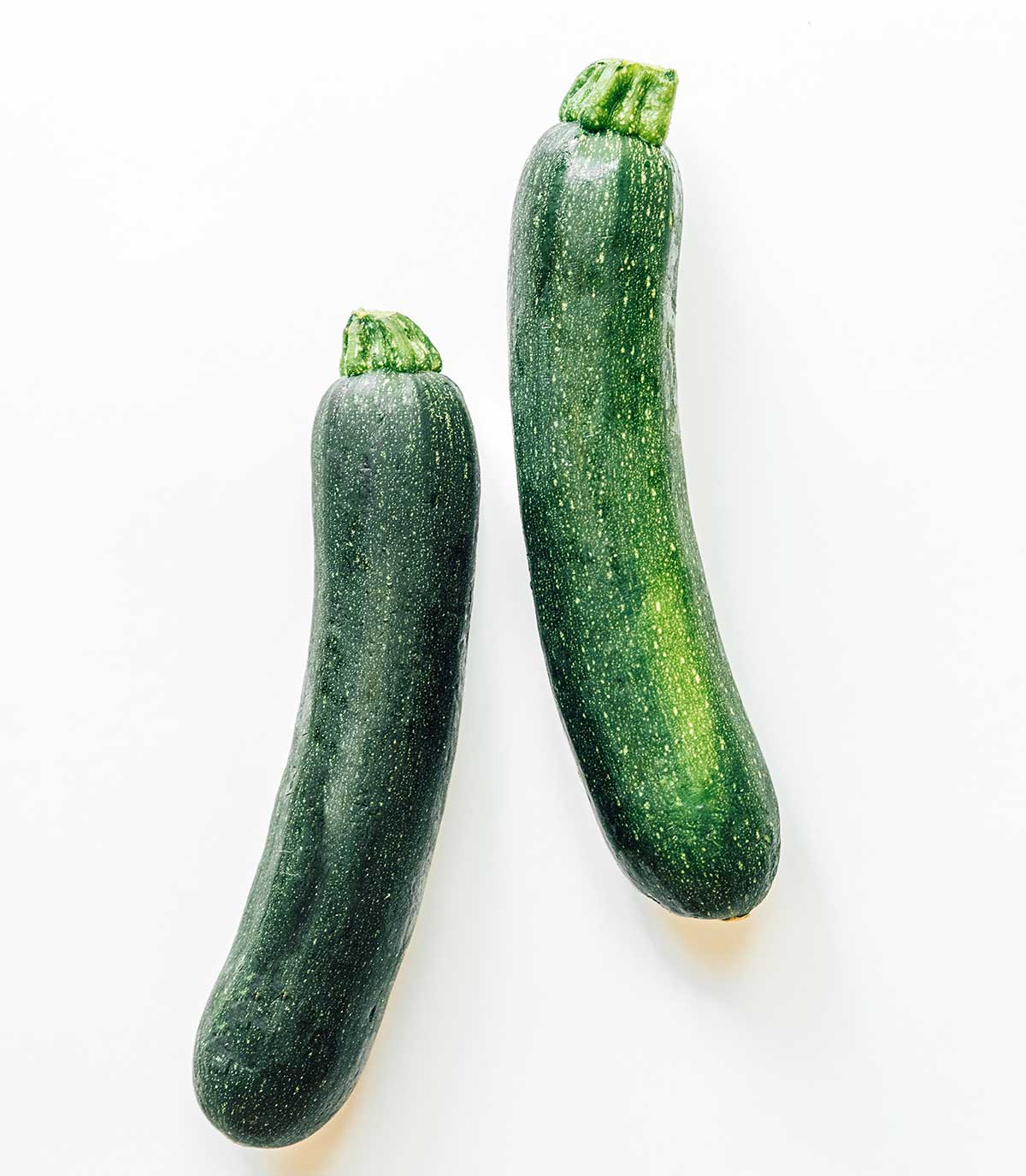
Cucumber vs. Zucchini
Ever get confused about the difference between cucumber and zucchini? You’re not alone!
- Appearance: You can tell the difference between cucumber and zucchini because zucchini have a woody stem. Cucumber don’t have this stem, and are more waxy.
- Taste: Cucumber have a cooling crunchy flavor that can be enjoyed raw, where zucchini should almost always be cooked.
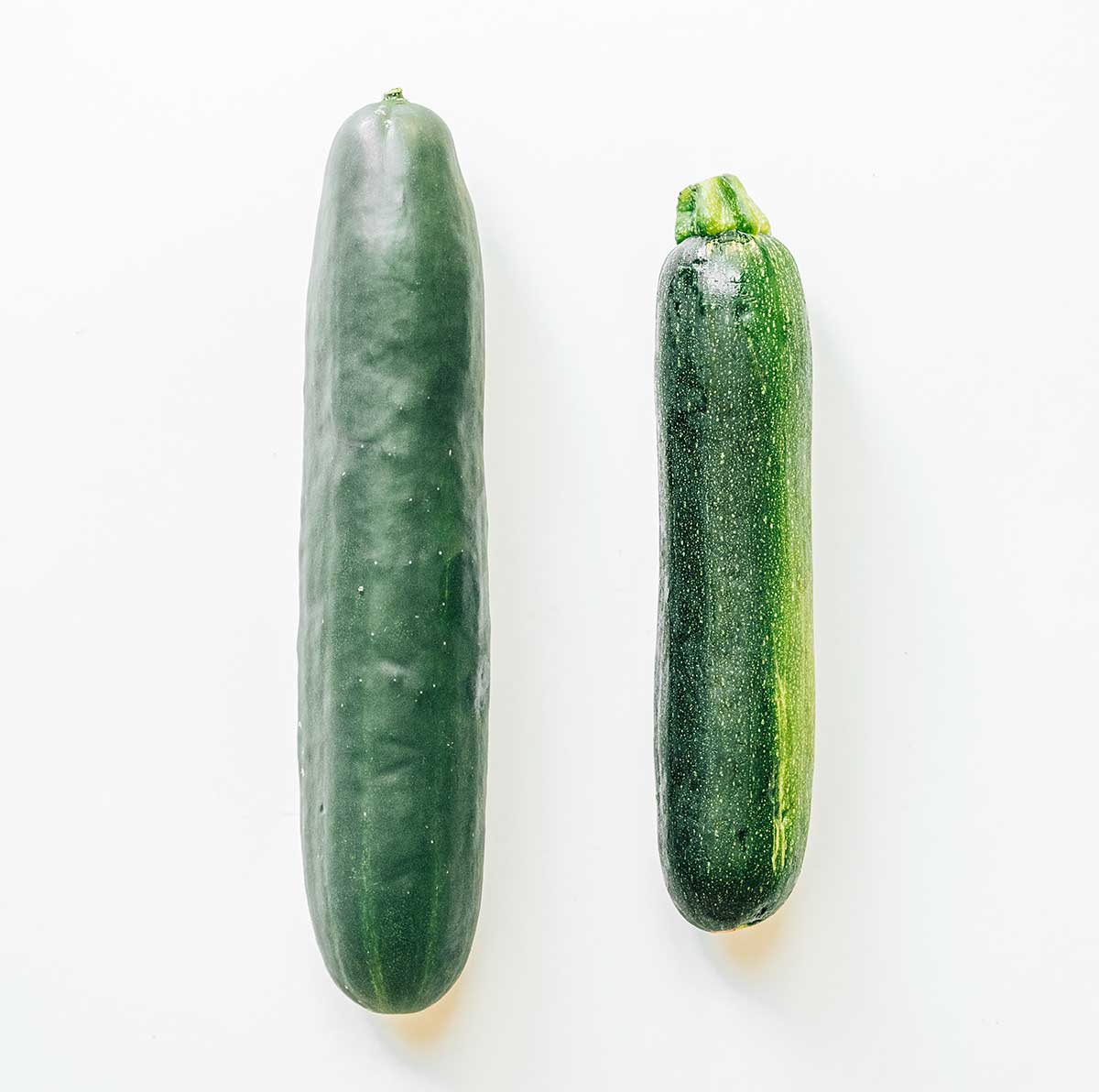
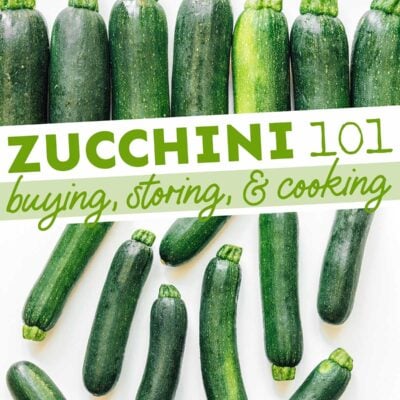
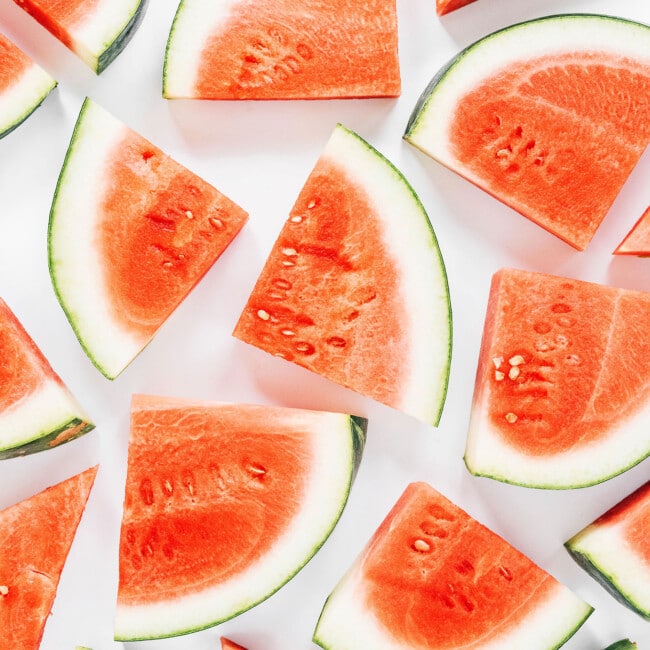
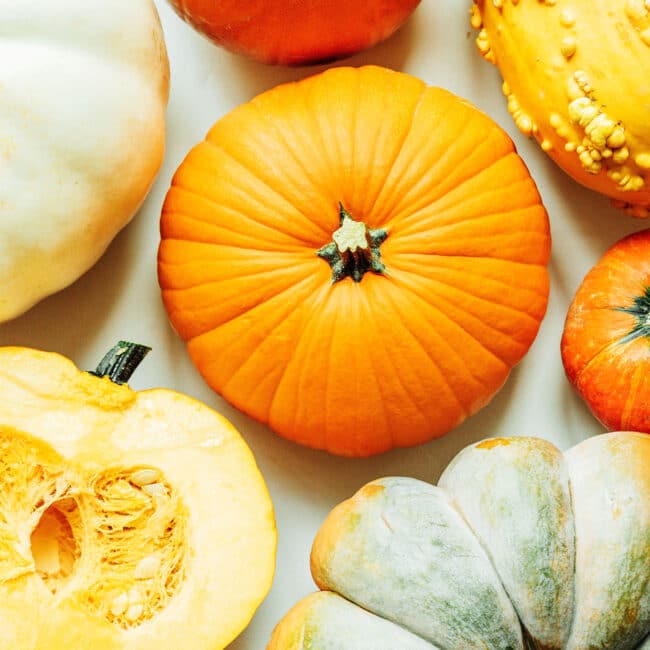
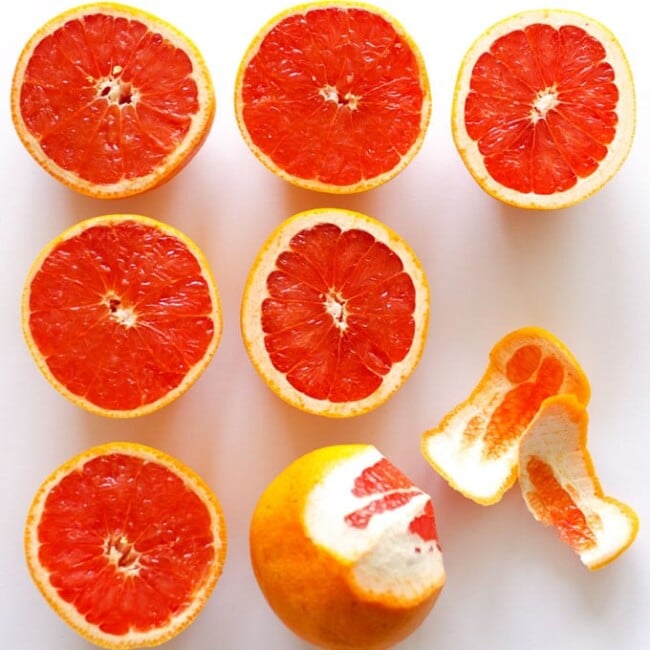
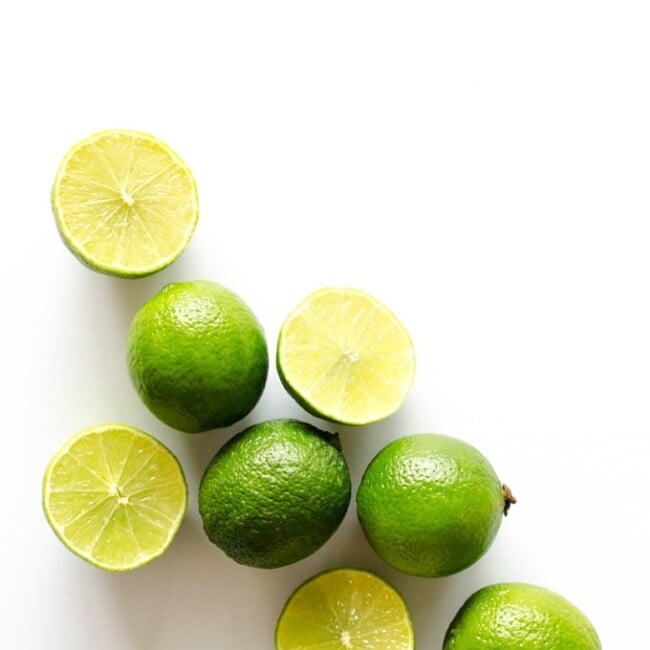
Janet Beaudet says
All your information on zucchini I’d interesting but did not answer my question which was what is the waxy feeling coating on the store bought zucchini and is it harmfull?
Sarah says
This is probably an edible wax put on by the producers to make them more shiny and longer lasting. It’s totally edible, but you can wash it off if you want to! 😀
Audrey Rogers says
why does zucchini sweat does that mean it’s spoiled
Sarah says
This does not mean that it’s spoiled – simply because zucchini contains so much water!
Ginger MCLELLAN says
I was given an overgrown “zucchini” that I don’t think was an actual zucchini. The skin was thin and hard,large stringy seeds and hard flavorful creamy flesh. What was it???
Sarah says
It sounds like an overgrown zucchini, actually! When they become too big they take on a lot of those less-than-tasty characteristics.
Elva McGarry says
My zucchini is about 6 inches but very fat..is this a baseball zucchini and should I pick now?
Sarah says
It sounds like it may be! I would pick it, the smaller zucchini have a better flavor 😀
harvey epstein says
Does the nutrition value per lb. drop if a zucchini is grown too large?
Sarah says
I would think the sugar content would be reduced and it would have a bit more fiber once it starts getting larger!
Kim Lerbscher says
Can a zucchini be very round like 3-4 inches in diameter (like a softball) and like a foot and a half inches long? Is the skin/peel edible?
By my experience that I had currently which I believe was a zucchini I had boiled it in the oven with the skin/peel on and it didn’t seem like I could eat the skin/peel. The inside was soft to my liking but the skin/peel was not so much.
Sarah Bond says
Yes! Zucchini can come in globe shapes, or can be more traditional. And yes, the skin is edible (although sometimes it can be bitter).